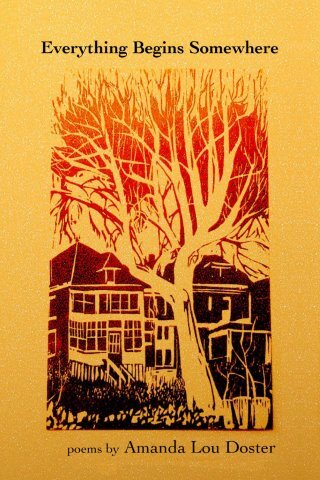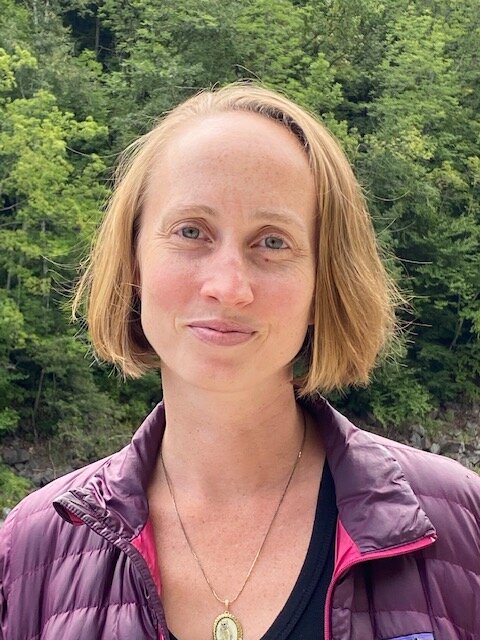When did you first encounter poetry? How did you discover that you wanted to write poems?
I was 12 or 13 in the early 90s, an American tween living in the suddenly former East Germany, my family part of a tiny English-speaking expatriate artist community. There weren’t a lot of books written in English to be had, mostly spy novels and romances. Somehow a book fell into my hands in which one of the characters quoted a dozen lines or so from Louis MacNeice’s “Autumn Journal”. I read those lines over and over out loud to myself, trying to make sense of it all. Later that year, for my birthday, someone shipped me a copy of MacNeice’s selected works — a treasure of a gift at a time when airmail was an extravagant luxury. I hardly understood what I was reading, and MacNeice isn’t a poet I’ve ever really returned to. But I still have that book, and deep gratitude for the comfort it gave me during what was otherwise a very strange time.
Do you have a writing routine? A favorite time or place to write?
Not currently, to be completely honest. I need lots of empty space and time to write—which doesn’t really exist within my also-chosen-life of mothering, working, and now pivoting from “remote learning” to homeschooling for my 7-year-old. Much of my chapbook was written while I was in grad school, pre-parenthood. Chunks of it were written during a few stolen weekend retreats I managed to create when my kiddo was tiny. Our extended family all live plane rides away, and my husband’s work takes us to Costa Rica every winter—until the pandemic I would use the forced quiet time on airplanes to write or revise. I aspire to something more regular, but haven’t made it work yet. Maybe soon.

Where do your poems most often “come from”—an image, a sound, a phrase, an idea?
A line or a phrase. Something sticks in my head and I can’t let it go. So I follow it until it’s done. For years I kept notebooks of random phrases and ideas. I’ve recently started carrying my notebook around again, and am hoping I’ll get back into the habit of filling it.
Which writers (living or dead) have influenced you the most?
Besides the long list of authors whose books changed me, it’s the writers I know personally who have influenced me the most. Namely—the people who both encouraged me to keep writing, but also took my writing seriously enough to give me honest feedback. One particular high school English teacher. A beloved college friend—we spent four years editing everything either of us wrote, & to this day I love reading his writing over just about everything. A group of women from a local writing group where I live. Friends and professors from my MFA program. & these last many years my fellow Slate Roof poets. All these people, sticking with their own writing and helping me find ways to stick with mine.
What excites you most about your new collection? (Significance of the title? Overarching themes? Process/experience of assembling it?)
That it’s DONE! When I learned I had won the contest at Slate Roof Press, I was in such a state of new-parenthood exhaustion and delirium that I didn’t even remember entering the contest. Before committing to joining the press, I remember talking to Cindy Snow, another Slate Roof poet and a mother — she assured me that it was possible to be a mom and finish a book. There were so many years where I made no progress at all on the book I nearly gave up. But no one at the press ever gave up on me—and by picking away at it slowly, somehow it all came together.
Sample poem from Everything Begins Somewhere:
It is too late to become a supermodel, etc.
Think of the trombone. Take its long metal body,
plant the tuning slide in the ground
and fill its bell with berries. Any berries will do
as long as they are fat and render the trombone
silent. Think of your grandfather,
who was musical in high school and
after that always sad. Ask yourself how long
you could mourn a stolen trombone,
ask yourself if you’ll accept regret,
ask yourself what it means
to be made of brass—always moaning.
It is not for you to become the instrument;
you are already something else
perhaps unsuited to a flared lip and
being planted like lawn art.
Think of what you are meant to do.
Walk into the estuary that smells of salt, picking
seaweed from your ankles. Think of how far
you can swim because you are not a trombone.
Purchase Everything Begins Somewhere

Amanda Lou Doster’s debut collection, Everything Begins Somewhere, won the Slate Roof Press Annual Chapbook Contest. She also has won the Franklin County Poet’s Seat Poetry Contest and was a finalist in the Hedgerow Books Competition. Her work has appeared in Cider Press Review, Sidelines, and elsewhere, and was recently reviewed in the Boston Globe. She holds an MFA from the University of New Hampshire and lives with her husband and son in Greenfield, MA.